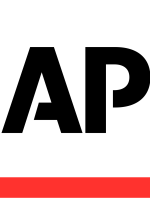Updated at 5:26 p.m. on January 29, 2021:
The State of Michigan is approving permits to allow an underground tunnel to be built under the Straits of Mackinac. The Canadian pipeline company Enbridge Energy applied for the permits from the Department of Environment, Great Lakes, and Energy (EGLE) last spring.
The tunnel is to house a replacement segment of the Line 5 dual pipeline which carries crude oil and natural gas liquids across Michigan to Sarnia, Ontario. Enbridge says the tunnel will be approximately four miles long and will cost $500 million to construct.
In a news release, the state environmental agency acknowledged public concerns about the existing Line 5 which sits on the bottom of the Straits. It also concluded the current 67-year-old pipeline violates the Public Trust Doctrine and “poses an unacceptable risk to the Great Lakes."
Hugh McDiarmid of the Michigan Department of Environment, Great Lakes and Energy says this decision does not address the wisdom of an oil pipeline in the Great Lakes, but technical issues with digging the tunnel.
“Wetlands disturbances, water discharge permits and various things. These are not permits to run a fuel line through the tunnel, which is a separate issue.”
But Enbridge spokesman Ryan Duffy says this is a critical milestone.
“From here, we still need some additional permits," he said. "We would need the permit for the US Army Corps of Engineers, then we would need the approval from the Public Service Commission, so those are still pending right now.”
Enbridge still needs approval from the Michigan Public Service Commission and the US Army Corps of Engineers, and to fend off lawsuits backed by Governor Gretchen Whitmer and Attorney General Dana Nessel. Whitmer is working to revoke the easement for the current pipeline. That effort is being challenged in federal court by Enbridge.
The pipeline company says shutting down the current Line 5 would cause energy shortages in the region and result in severe economic consequences for Michigan, neighboring states, and Canada. Critics of Line 5 say most of the crude oil ends up in Canada and that Michigan benefits very little.
The pipeline company said in a statement that “the Great Lakes Tunnel will encase a replacement section of Line 5 well below the lakebed, eliminating the risk of an anchor strike and virtually eliminating the potential of any release from Line 5 into the Straits.”
The dual pipelines have been struck twice. Once by a ship that was unaware it was dragging its anchor. The second time was by Enbridge contractors working on the pipelines.
Environmental organizations and citizens groups immediately criticized the decision by EGLE. The group Oil & Water Don’t Mix stated EGLE “did an end-run around environmental laws, best practices for tunnel construction design, and common sense” in approving the permits.
The Michigan League of Conservations Voters called the Line 5 tunnel a danger to Michigan’s Great Lakes. The group’s Executive Director, Lisa Wozniak, said in a statement, “Building a tunnel to keep oil flowing through our Great Lakes jeopardizes our future and will anchor our state to another generation of fossil fuels.”
Other permits from the Michigan Public Service Commission and the U.S. Army Corps of Engineers are required before the tunnel construction can begin. Duffy says Enbridge hopes to start construction by the end of the year.
Original Post
Michigan's environmental agency is approving construction of an underground tunnel to house a replacement for a controversial oil pipeline in the Great Lakes. State officials have awarded permits to Enbridge for the $500 million tunnel project.
The company is resisting Democratic Governor Gretchen Whitmer's order to shut down Enbridge's Line 5 in the Straits of Mackinac, which connects Lake Huron and Lake Michigan.
State officials say the tunnel is a separate issue from the fight over the existing line. They say Enbridge's application for the project satisfied legal requirements. Another agency will decide whether to approve a new pipe to run through the tunnel, which is scheduled for completion in 2024. Federal approval also is needed.
Want to support reporting like this? Consider making a gift to Michigan Radio today.






